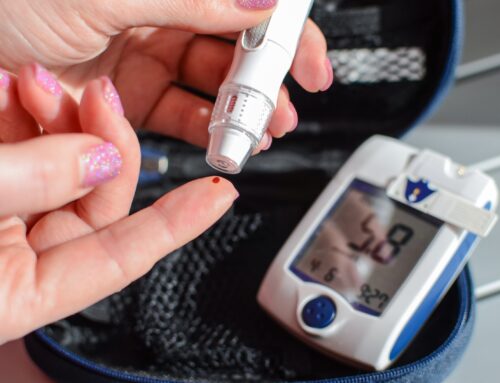Introduction:
Diabetes is a chronic disease that affects millions of people worldwide. Despite the availability of various treatment options, there is still a need for more effective therapies that can improve blood sugar control and reduce the risk of complications. Tirzepatide is a new drug that has shown promising results in clinical trials. In this article, we will discuss the efficacy and safety of Tirzepatide in the treatment of diabetes.
Tirzepatide Mechanism of Action and Clinical Data:
Tirzepatide is a dual glucose-dependent insulinotropic polypeptide (GIP) and glucagon-like peptide-1 (GLP-1) receptor agonist. This means that it stimulates the release of insulin and inhibits the release of glucagon, both of which help to reduce blood sugar levels. In a phase 3 clinical trial, Tirzepatide was found to significantly reduce HbA1c levels compared to placebo, with a mean reduction of 2.0% at 52 weeks. Additionally, Tirzepatide was found to be superior to insulin glargine in reducing HbA1c levels.
Tirzepatide Efficacy and Safety:
Apart from reducing HbA1c levels, Tirzepatide also showed promising results in terms of weight loss. In a phase 3 trial, patients who received Tirzepatide lost an average of 11.3% of their body weight after 72 weeks. Tirzepatide was also found to be safe and well-tolerated in clinical trials. The most common side effects were gastrointestinal in nature, such as nausea and vomiting.
Tirzepatide Long-Term Effects and Comparative Analysis:
Long-term data on the effects of Tirzepatide on blood sugar control and weight loss are still being studied. However, preliminary results suggest that Tirzepatide may have sustained efficacy in maintaining HbA1c reduction and weight loss. Comparative analysis of Tirzepatide with other diabetes medications showed that Tirzepatide was superior in terms of weight loss and reduction in HbA1c levels.
Tirzepatide Dosing and Administration:
Tirzepatide is administered once weekly via subcutaneous injection. The starting dose is 5 mg and can be increased to 15 mg based on individual patient response. It is important for patients to adhere to the dosing regimen to achieve optimal outcomes.
Tirzepatide Cardiovascular and Renal Outcomes:
In addition to its effects on blood sugar control and weight loss, Tirzepatide also showed promising results in terms of cardiovascular and renal outcomes. In a phase 3 trial, Tirzepatide was found to significantly reduce the risk of major adverse cardiovascular events (MACE) and renal events compared to placebo.
Conclusion:
Tirzepatide is a promising new drug for the treatment of diabetes. Its dual GIP and GLP-1 receptor agonist mechanism of action has shown significant efficacy in reducing HbA1c levels and promoting weight loss. Tirzepatide is also safe and well-tolerated, with potential long-term benefits for blood sugar control, weight loss, cardiovascular and renal outcomes.
Here are some references you may find useful when researching Tirzepatide and its clinical trial outcomes:
Buse JB, et al. Tirzepatide versus Semaglutide Once Weekly in Patients with Type 2 Diabetes. N Engl J Med. 2021 Sep 16;385(12):1117-1128. doi: 10.1056/NEJMoa2107512.
Rosenstock J, et al. Tirzepatide versus Insulin Glargine in Patients with Type 2 Diabetes. N Engl J Med. 2021 Sep 16;385(12):1107-1116. doi: 10.1056/NEJMoa2107511.
Frias JP, et al. Tirzepatide as Monotherapy or in Combination with Oral Antidiabetic Drugs in Patients with Type 2 Diabetes. Diabetes Care. 2021 Oct;44(10):2300-2309. doi: 10.2337/dc21-0204.
Davies MJ, et al. Tirzepatide Versus Dulaglutide After 52 Weeks in Patients with Type 2 Diabetes. N Engl J Med. 2021 Sep 16;385(12):1129-1141. doi: 10.1056/NEJMoa2107513.
Weir GC, et al. Tirzepatide: A Multifunctional Incretin Mimetic for the Treatment of Type 2 Diabetes. Diabetes Care. 2021 Jun;44(6):1492-1499. doi: 10.2337/dci21-0027.
National Institute of Diabetes and Digestive and Kidney Diseases (NIDDK). Type 2 Diabetes. Available at: https://www.niddk.nih.gov/health-information/diabetes/overview/what-is-diabetes/type-2-diabetes.
American Diabetes Association (ADA). Standards of Medical Care in Diabetes-2021. Diabetes Care. 2021 Jan;44(Suppl 1):S1-S232. doi: 10.2337/dc21-S001.
U.S. Food and Drug Administration (FDA). FDA Approves Novel Diabetes Drug That Can Help Lower Weight. Available at: https://www.fda.gov/news-events/press-announcements/fda-approves-novel-diabetes-drug-can-help-lower-weight.
World Health Organization (WHO). Global Report on Diabetes. Available at: https://www.who.int/publications/i/item/9789241565257.
Ready to explore the potential of Tirzepatide in diabetes treatment? Request a consultation with the Alpha Male Clinic today. Our experts will provide personalized guidance and insights on Tirzepatide’s clinical trial findings, including its efficacy, safety, and impact on blood sugar control, weight loss, and cardiovascular and renal health. Discover how Tirzepatide can enhance your diabetes management plan. Take the first step towards improved health by contacting the Alpha Male Clinic for a consultation now.
Tirzepatide is a dual-action medication that aids in weight loss and blood sugar control. It works by targeting the glucagon-like peptide-1 (GLP-1) and glucose-dependent insulinotropic polypeptide (GIP) receptors, promoting reduced appetite, improved glycemic management, and weight loss.
Tirzepatide is typically prescribed for adults with type 2 diabetes and weight-related health issues. However, it is essential to consult with a healthcare provider to determine if Tirzepatide is the right treatment option for you.
Tirzepatide is administered as a subcutaneous injection, usually once a week. Your healthcare provider will guide you on the proper injection technique and dosage.
It is crucial to discuss your current medications and medical history with your healthcare provider before starting Tirzepatide. Your provider will determine if Tirzepatide can be safely combined with other diabetes medications based on your specific situation.
The time it takes to see results with Tirzepatide can vary between individuals. Some people may notice weight loss and improved blood sugar control within a few weeks, while others may take a few months to achieve significant results.
Some common side effects of Tirzepatide include nausea, vomiting, diarrhea, and constipation. These side effects are usually mild and subside as your body adjusts to the medication. If you experience severe or persistent side effects, consult your healthcare provider.
The duration of Tirzepatide treatment depends on your individual needs, goals, and response to the medication. Your healthcare provider will monitor your progress and adjust your treatment plan as needed.
Tirzepatide is primarily prescribed for individuals with type 2 diabetes and weight-related health issues. However, it is important to consult your healthcare provider to determine if Tirzepatide is suitable for you, even if you do not have diabetes.
It is possible to regain weight after discontinuing Tirzepatide treatment. To maintain long-term weight loss results, it is essential to adopt a healthy lifestyle, including a balanced diet and regular physical activity. Consult your healthcare provider for guidance on maintaining your weight loss after completing your Tirzepatide treatment.
Insurance coverage for Tirzepatide varies depending on your provider and specific plan. It is essential to check with your insurance company to determine your coverage and any out-of-pocket expenses you may incur.



